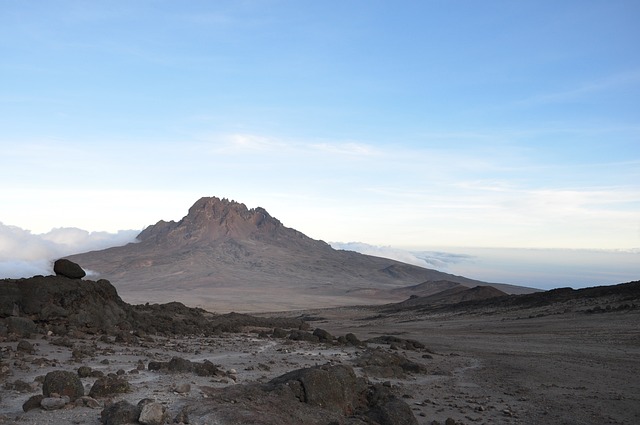8 Day Lemosho Route

Overview
8 Day Lemosho Route
The Lemosho Route is a popular route for climbing Kilimanjaro, known for its scenic beauty, diverse landscapes, and good acclimatization profile. It is a relatively new route compared to the Machame Route or the Marangu Route, but it has quickly become a favorite among trekkers.
The 8-day Lemosho route is known for its scenic beauty and focus on acclimatization, improving your chances of reaching the summit.
8 Day Lemosho Route Itenerary
Day 1: Lemosho Gate (2,385m) – Mti Mkubwa Camp (2,780m)
Distance: 4.8 kilometers (3 miles)
Time: 3-4 hours
Habitat: Rainforest
The trek begins at the Lemosho Gate on the western slopes of Kilimanjaro. You’ll enter a lush rainforest teeming with birdlife and colobus monkeys. The trails can be muddy and slippery, so gaiters and trekking poles are recommended.
Day 2: Mti Mkubwa Camp – Shira 1 Camp (3,500m)
Distance: 7.9 kilometers (5 miles)
Time: 4-6 hours
Habitat: Moorland
The trail gradually ascends out of the rainforest into a savannah of tall grasses, heather, and volcanic rock formations. This day offers a chance to spot wildlife like zebra and eland.
Day 3: Shira 1 Camp – Shira Camp 2 (3,900m)
Distance: 6.9 kilometers (4.3 miles)
Time: 5-7 hours
Habitat: Moorland
The trek continues across the Shira Plateau, a volcanic expanse with views of Mount Meru, the fourth highest peak in Africa. You might also have the opportunity to do an acclimatization hike to Shira Cathedral, a subsidiary peak offering panoramic views.
Day 4: Shira Camp 2 – Lava Tower (4,640m) – Barranco Camp (3,960m)
Distance: 10.1 kilometers (6.3 miles)
Time: 4-6 hours
Habitat: Semi-desert
Today’s hike takes you past the Lava Tower, a solidified volcanic extrusion, and offers challenging climbs with loose scree. You’ll descend to Barranco Camp, a scenic location nestled amidst giant boulders.
Day 5: Barranco Camp – Karanga Camp (4,035m)
Distance: 5.2 kilometers (3 miles)
Time: 4-5 hours
Habitat: Alpine Desert
The trail traverses the Barranco Wall, a series of steep climbs with switchbacks. You’ll be rewarded with breathtaking views of the Barranco Valley and the Breach Wall, a dramatic cliff face. The day ends at Karanga Camp, a smaller campsite with limited facilities.
Day 6: Karanga Camp – Barafu Camp (4,640m)
Distance: 3.3 kilometers (2 miles)
Time: 4-5 hours
Habitat: Alpine Desert
This is a relatively short hike to conserve energy for the summit push. The trail ascends scree slopes to Barafu Camp, the last camp before the summit. Here, you’ll receive a briefing from your guides and enjoy a final dinner before a pre-dawn wakeup call.
Day 7: Barafu Camp – Uhuru Peak (5,895m) – Mweka Camp (3,080m)
Distance: 4.86 kilometers (3 miles) up + 13 kilometers (8 miles) down
Time: 7-12 hours up + 5-6 hours down
Habitat: Glacial summit
Summit day is the most challenging part of the trek. You’ll start in the pre-dawn hours, hiking through scree and snowfields to reach Uhuru Peak, the highest point in Africa. The descent is long and strenuous, but you’ll eventually reach Mweka Camp for a well-deserved rest.
Day 8: Mweka Camp – Mweka Gate (1,630m) – Moshi
Distance: 10 kilometers (6.2 miles)
Time: 3-4 hours
Habitat: Rainforest
The final day involves a trek through the rainforest back to the Mweka Gate, where you’ll be met by your transport and transferred back to Moshi.
Important: Remember, this is a challenging trek at high altitudes. Proper preparation, including physical fitness and acclimatization, is crucial for a safe and successful summit attempt.
